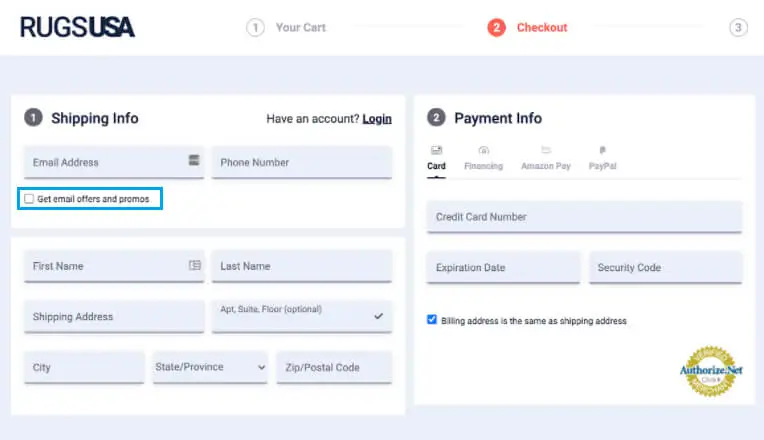Expert Advice For Picking A Oncologist Email list
Expert Advice For Picking A Oncologist Email list
Blog Article
What Are The Factors I Should Be Thinking About When Purchasing An Email List Of Family Medicine?
For the most effective results from your marketing and outreach campaign, you must take into consideration several important aspects. What you should consider is:1. Data Quality and Accuracy
Source of Data - Make sure that the data is collected from reliable sources. This includes medical directories as well as licensing boards. The email addresses of family medicine practitioners should be current, updated, and customized for the intended group of patients.
Verification Process: Ask the provider about their verification procedure. Inactive or incorrect email should be removed and the list of email addresses should be regularly updated. Validated email addresses reduce bounce rates and improve deliverability.
Segmentation options. The list should be able to be segmented by parameters like geographic place of residence (country/state/city), years of experience (or practice size) or specific areas of particular interest. Segmentation can help with more personal and specific outreach, which increases the rate of engagement.
2. Compliance with Legal Regulations
Data Privacy Laws : Ensure your list complies the General Data Protection Regulations (GDPR) for Europe as well as the California Consumer Privacy Acts (CCPA) for the U.S.A., as well as any other applicable privacy laws. Email addresses must be collected legally and with consent to avoid any regulatory penalties.
CAN-SPAM Act Compliant: If you're involved in email marketing in the U.S., make sure that the list of recipients is in compliance with the CAN-SPAM Act. Make sure to include clear opt-out options and stay clear of inconsistent subject lines and details in emails.
The consent to confirm opt-in was granted to obtain the email address. Family medicine doctors consented to receiving promotional emails from third-parties, ensuring that they are in compliance and decreasing complaints about spam.
3. Provider Reputation
Reputable Providers: Choose an organization that has an established track record of providing compliant and high-quality data. Review, testimonials and case studies from clients to gauge the company's reliability and trustworthiness.
Transparency. Providers must be open and transparent about the method that they employ to collect data as well as the frequency with which they update their data. This is a red flag when the company is not able to describe how they got their data.
Customer Support: Select providers who offer robust support to their customers. It is possible that you need help in technical issues, list segmentation and/or ensuring that your list is in compliance.
4. Cost and Cost and Return on Investment (ROI)
Pricing Models. Different pricing models are offered by providers, such as flat fees, pay-per-contact or subscription services. It is important to choose a pricing structure that is compatible with your budget.
Refund and Replacement Policies: Reputable providers provide a policy of refund or replacement of incorrect or out of date emails. Clarify all terms and conditions prior to making a make a purchase.
Value for Money: Don't focus solely on the cost. While a cheaper list might appear appealing, it may lead to poor deliverability or excessive bounce rates. It is best to purchase a premium list that has better targeting and greater engagement.
5. Data Ownership and Usage
Single Use Single Use vs. Multiple Use: Clarify whether you can use the list multiple times or if it's a one-time use only. Lists that permit multiple campaigns are more valuable, especially if you plan continuous outreach.
Exclusive vs. Shared Lists - Find out whether your list is exclusive or shared with multiple buyers. Exclusive lists have a lower chance of producing an oversaturated audience. They are also more likely to have higher engagement rates.
6. Data Format and Integration
CRM compatibility: Ensure that you have your email list formatted in a way compatible with either your CRM system (CRM) or with your email marketing tool. (Example, CSV). This allows for easy integration and makes it user-friendly.
Ease of use: The list should be simple to sort, segment or organize according to the criteria of your campaign. This will make it easier to target and communication efforts.
7. Ethical considerations
Relevance in Outreach: Family physicians are busy professionals. So, ensure you customize your outreach to meet their requirements. Avoid generic or irrelevant messages. It could damage the reputation of your company or result in complaints about spam or low engagement.
Avoiding Spam Tips: Send emails strategically and refrain from overloading your email list. If you flood recipients with ineffective emails, or send excessively, it could lead to unsubscribes, complaints about spam and a tarnished reputation.
Click here to view the complete article.
Concentrate on the quality of data and compliance with the legal regulations, and the reputation of providers when purchasing an email list for Family Medicine to ensure that your outreach efforts will be productive. Search for validated, segmented information that is in compliance with privacy laws and aligned with your desired people. By investing in high-quality lists and sending relevant messages, you will increase the number of people who engage with your content and increase the return on investment from your marketing. See the expert family medicine email list for blog advice.
What Are The Things I Should Be Thinking About Before Buying An Appending Data?
Consideration of data appending service is important. You should consider several factors in order to make sure that the appending service will improve the quality and accuracy of your information while maintaining ethical, legal, and compliance standards. Data appending is the process of enhancing your existing database with missing or extra data, including emails, phone numbers as well as demographics. These are the most important aspects to make when buying data appending: 1. Accuracy of data and data quality
Source of data: Make sure the appending provider is using reliable and high-quality sources like verified databases or public records. You can also opt in directories. Reputable service providers usually gather information from legitimate sources. They make sure that the information is correct and relevant.
Verification process: Determine if the provider uses rigorous verification and validation process. It is important to ensure that the information you receive is up-to-date and accurate. As part of the service provided by your provider you can expect frequent updates and data cleansing.
Match Rate: Each service has a different match rate which is the proportion of records you can improve by adding new information. You must balance a high percentage of match with data accuracy. The highest match rates are essential but shouldn't be at the cost of quality.
Customization: Depending on your needs, ensure that the service provider provides customizable data append solutions. This could involve appending different kinds of data like contact information, behavioral data or demographic and firmographic information.
2. Data Security and Privacy
Conformity with regulations - Data appending involves the handling of personal information. It is essential that the appending service adheres to regulations regarding data protection, including General Data Protection Regulations (GDPR) and California Consumer Privacy Acts (CCPA) and other privacy laws. To avoid repercussions and fines damages, the appended information should be legally collected, processed and utilized.
Consent Management: Make sure that all information you share originates from individuals who have expressly consented to their information being shared. Do not use data sources that have suspect practices, or those that breach the privacy rights of users. This could lead to ethical and legal issues.
Data Security - Verify the data security policies of your provider to ensure the integrity and confidential of your database and any data you add. Data transfer protocols that are secure are provided, as well as encryption and access control.
3. Provider Reputation
Vendor with a Good Name: Search for a business that has earned a reputation for delivering applications that can be used to add data that are reliable and compliant. Read their reviews, testimonials and case studies to find out how they have performed. A company with a long-standing reputation is more likely to provide top-quality services, and also ensure that they are in compliance with the law.
Some providers are specialized in certain industries like healthcare, finance, or retail. You should look for a vendor that is experienced and knowledgeable in your specific industry if you work in a niche. They could offer solutions that are that are tailored to meet your particular requirements.
4. Costs and Returns on Investment (ROI).
Pricing Models: Appending services for data offer a range of pricing models. They include flat fees for bulk updates or per-record charges. Make sure that you are aware of the pricing structure and the way it is aligned to your budget. Be cautious of low-cost options as they could be a sign of poor quality data.
Determine the potential return on investment by adding data. A quality service can help you improve your marketing's performance, improve the engagement of your customers and increase conversion rates. Compare the price of the service versus the expected benefits you can expect by having more accurate, relevant information.
5. Data Types with Appending Options
Types of data: Consider the kinds of data you would like to add to your database. The most common types are:
Email addresses are essential to email marketing campaigns.
Telephone numbers are crucial for sales outreach and customer service.
Demographic data: Very useful for segmentation and targeting in marketing.
Firmographic data is a must for B2B firms who are targeting businesses based on revenue or employee size.
Social Media Profiles Certain companies offer the option of adding social media profiles to digital and online marketing strategies.
6. Data Format and Integration
Compatibility: Make sure the data is in a format that works with your CRM system. (CRM) system or marketing automation software or other tools you use. The most common formats are CSV, Excel, or API integration. These formats will allow for simple data import and use.
Data Cleansing and Enhancement A good provider would also offer data cleaning as a part of their appending services. This involves correcting inaccurate information as well as removing redundant records and eliminating old records. Data enrichment is more than just adding new information--it also improves the overall quality of your database.
7. Ethical Aspects
Transparency. The provider should disclose which source the information appended comes from and the method employed to gather it. The ethical data appending service has strict guidelines for the collection and use of data and will ensure that the data obtained is processed in a transparent and legally-sound way.
Effect on Engagement: Appending information about contacts such as phone numbers and emails shouldn't lead users to engage in ad-hoc and intrusive practices. Use the added data responsibly. Be sure to adhere to the best practices, such as providing opt-outs and respecting privacy.
Conclusion
When you purchase data appending, focus on the accuracy of data, legal compliance as well as provider reputation. Choose services that deliver reliable, valid data that meets privacy regulations such as GDPR and CCPA. Also, make sure that the added information is compatible with your system and consider the long-term ROI by investing in accurate, enhanced data. Appending data can improve the efficiency of your marketing and business by selecting the best provider. Have a look at the top rated data appending services for more examples.